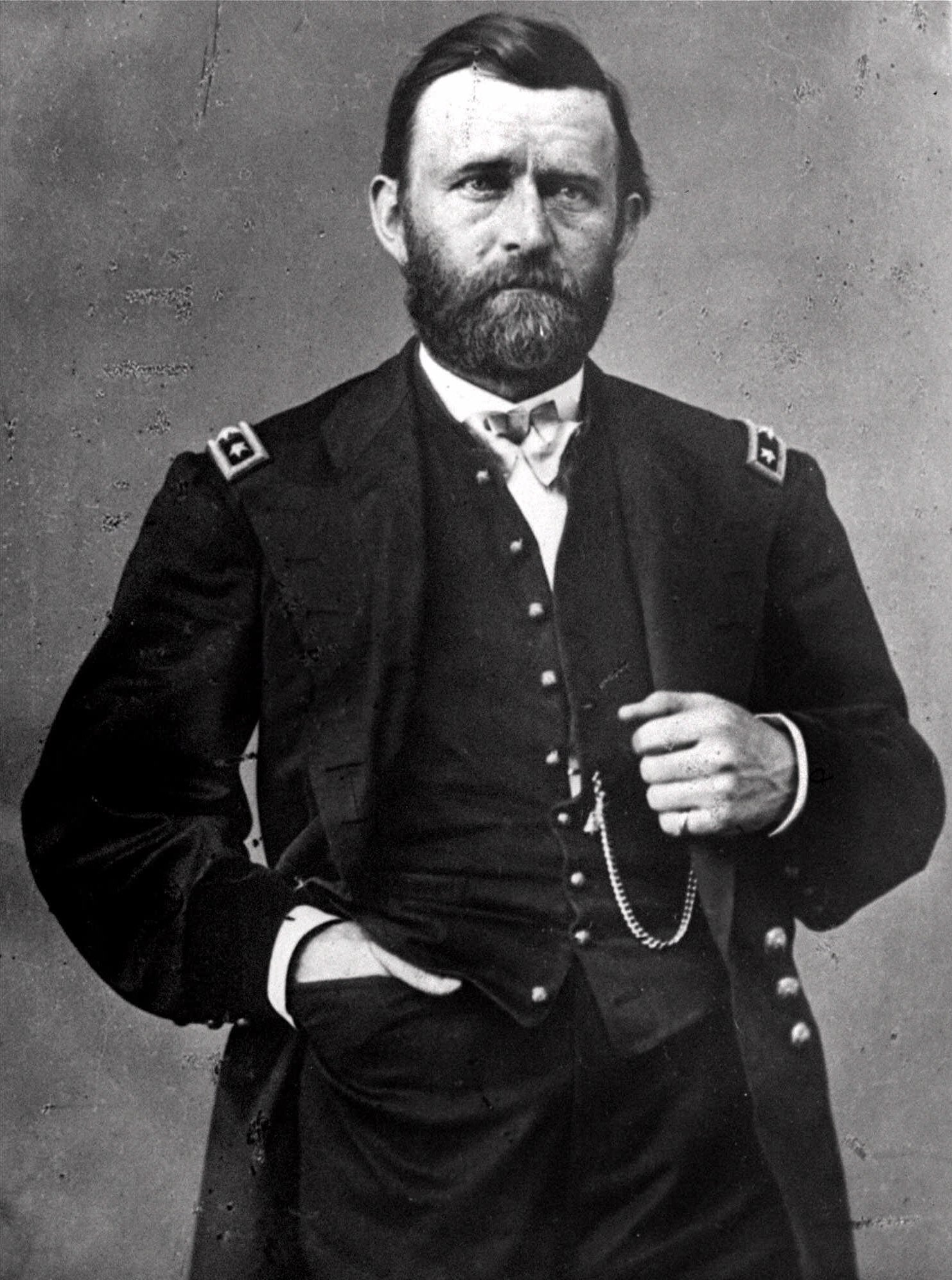Question of the Week for March 31, 2014
Do you believe that General Grant should have attached himself to the Army of the Potomac, in 1864, or would his skill-set have been better suited elsewhere?

Do you believe that General Grant should have attached himself to the Army of the Potomac, in 1864, or would his skill-set have been better suited elsewhere?

Well, when Lincoln appointed Grant supreme commander of all Union forces, I think it was inevitable that he would go east to direct the war from Washington. Although most historians of the eastern theatre give the opposite impression, Grant did leave Meade in charge of the Army of the Potomac, although Grant was more or less the puppet-master.
That Grant felt free to direct the war from Washington was largely due to his trust in General Sherman who was leading the effort in the west. It was this close cooperation between Grant and Sherman, more than anything else, that brought the war to a quick close.
While I think Grant a poor tactician, he possessed a strategic vision that most other generals, north and south, lacked. Also, Lincoln was confident enough in Grant to loosen the reins of power sufficiently to allow Grant to win the war, something Jefferson Davis was never able to do.
I agree . However, one does wonder what would have happened if Grant stayed in the West..
I don’t think things would have been much different in the West if Grant had stayed–nothing left to do there except mop up anyway. I think the better question may have been. . . once Grant was appointed Supreme Commander, there was some question of his being based in D.C. He chose not to do this, and everyone seems to be in agreement that this was a good decision. But what if he had chosen to be in Washington?
Grant’s chief skill set was his determination to keep going and his refusal to be bluffed into inaction by his opponents. If you accept that premise, then Grant’s presence with the Army of the Potomac was critical. If Grant had not been with the Army of the Potomac at the Battle of the Wilderness, then Meade might have retreated and sat down for two or three months to lick his wounds, allowing Lee to detach units to go to Georgia and help Johnston against Sherman.
Grant’s presence at the Wilderness meant that the Army of the Potomac would continue its offensive. The result was the Overland Campaign, which led to Lee and the Army of Northern Virginia being cornered at the Siege of Petersburg. Without Grant’s steadfast leadership, the Overland Campaign would not have been possible.
Regarding a previous comment, nothing left in the West but to mop up? Wow. I doubt any member of Sherman’s army, or the Army of Tennessee, would have considered the Atlanta Campaign to be merely an exercise in mopping up. Nor should we.
Good point. I don’t suppose Hood would have considered it mopping it up either.
One key to Grant’s nationwide strategy was that Lee had to be pressed hard enough that he couldn’t detach troops to aid Johnston/Hood against Sherman. If Grant had not been with Meade and the Army of the Potomac when Lee bloodied their nose in the Wilderness at the start of the Overland Campaign, would Meade have turned back? Would Meade on his own have ever been as aggressive against Lee as was necessary, and as Grant was. I see no indication of it in the 8 months between Gettysburg and Grant taking overall command. Plus, politically it wasn’t possible for Grant, the new Gen-In-Chief on whom all Union hopes rested, to take himself away from what the public perceived as the critical scene of action (seeming to avoid going up against Lee) while the AoP got thrashed again. Grant had to stay with the AoP.